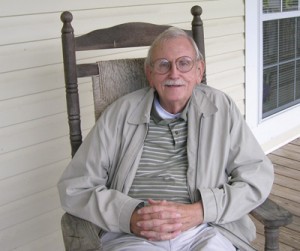 The number of Californians over the age of 85 has quadrupled over the past 40 years, but we still haven’t adapted to properly meet their end-of-life needs.
The number of Californians over the age of 85 has quadrupled over the past 40 years, but we still haven’t adapted to properly meet their end-of-life needs.
“There is a huge gap between the place and way that people would like to spend their final days – and the place and way that they do,” said Mark D. Smith, president and CEO of the California HealthCare Foundation, which recently commissioned a survey on Californians’ end-of-life wishes.
Fewer than one in four Californians has written instructions about how and where they want to die. Surveys continue to find that most Americans want to die at home, yet most still spend their last days in the less-than-homey surroundings of a hospital. Their loved ones want to spare them the emotional, physical, and financial burden, but often don’t know how to ensure that their wishes are carried out.
The survey re-visited the idea of reimbursing doctors to talk about end-of-life options, and found that there is currently broad support for this option among Californians, regardless of political affiliation. This was originally proposed as part of Obama’s expanded healthcare coverage, but was dropped after opponents branded the option “death panels” and drove down support.
The survey, “Final Chapter: Californians’ Attitudes and Experiences with Death and Dying,” also found that:
- Nearly 8 in 10 Californians said that if they were seriously ill, they would want to speak with their doctor about end-of-life care. But fewer than 1 in 10 report that they actually have.
- Eighty-two percent said that it is important to put their wishes in writing. Less than one-quarter have done so.
- More than half say they have not talked with a loved one about the kind of care they want at the end of life.
- Seventy percent said they would prefer to die at home. But only 32 percent pass away in their homes, according to the California Department of Public Health.
- Only 44 percent of Californians who have lost a loved one in the past 12 months say medical providers completely followed their loved one’s end-of-life preferences.
Patients and their loved ones tend to overwhelmingly prefer a more personal, warm, and loving environment for their last days, but haven’t yet figured out how to talk to their doctors about it. If these wishes aren’t put into writing, Smith says, “the system – almost always with the best of intentions – imposes [other options] on them.”
We hope that by opening up the end-of-life conversation, we can encourage patients and families to better understand how to communicate their end-of-life wishes to medical professionals.

 New Survey on Californians’ End-of-Life Wishes
New Survey on Californians’ End-of-Life Wishes



 How to Comfort A Dying Loved One
How to Comfort A Dying Loved One
 Our Annual Seven Holiday Gifts for Someone Who Is Grieving, 2024 Edition
Our Annual Seven Holiday Gifts for Someone Who Is Grieving, 2024 Edition














